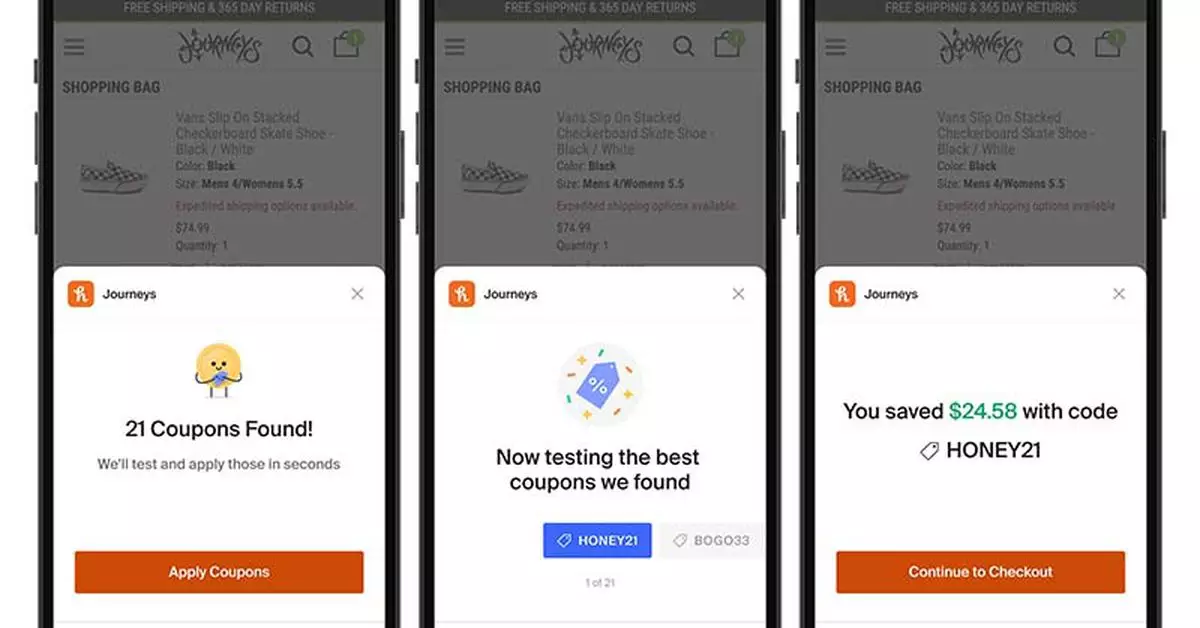The emergence of online shopping has made finding discounts easier than ever, with tools like PayPal Honey promising effortless savings. While the intention behind such extensions may be to simplify the shopping experience, scrutiny has arisen regarding their ethical practices. A recent exposé by YouTuber MegaLag raises concerns that Honey might not be the consumer ally it portrays itself to be. This article explores the claims made about Honey, the implications for online influencers, and the broader implications for the digital marketplace.
PayPal Honey operates as a browser extension designed to assist users in discovering coupon codes during online checkout processes. In theory, this capability should facilitate significant savings for consumers. However, according to MegaLag, the execution of this promise is less than satisfactory. The extension is alleged to often fail in locating applicable codes or resorts to providing its promotional codes, which might not necessarily be the best available option. Consumers might be led to believe they are receiving superior deals when, in reality, they could easily find better discounts through a simple search.
The critical question here is whether Honey genuinely serves the interests of consumers or whether it is primarily focused on its own financial gain. The extension’s claim of “finding every working promo code on the internet” appears disingenuous when users frequently miss out on better deals due to the software’s apparent limitations. As such, users are left wondering whether they are receiving the savings promised.
One of the most striking allegations made by MegaLag involves Honey’s purported practices regarding affiliate links. When a consumer clicks on an affiliate link provided by an influencer or a website and then uses Honey to find a discount, the extension reportedly replaces the influencer’s tracking link with its own. This results in Honey taking credit for the sale, depriving the original content creator of the commission they rightfully earned.
This practice not only calls into question the integrity of Honey but also threatens the livelihoods of content creators who rely on affiliate marketing as a source of income. Influencers invest time and resources into building trust with their audiences, and when a tool like Honey undermines that relationship by usurping their earnings, it poses a serious ethical dilemma in the digital advertising landscape.
Further compounding this troubling narrative, past comments from creators and industry insiders suggest that complaints about Honey’s practices are not isolated. Employees from Linus Media Group have hinted at their decision to sever ties with Honey due to similar concerns, indicating a troubling pattern that could dissuade potential affiliates from endorsing the tool.
In a climate where transparency is increasingly vital, the revelations about Honey underscore the importance of critical evaluation of online tools that claim to enhance shopping experiences. Consumers must be vigilant about not only the cost of products but also the methods employed by extensions like Honey to provide savings. If tools pose a risk to the revenue of content creators or fail to deliver on promises of superior discounts, it ultimately leads to a deeper erosion of trust in the digital ecosystem.
Furthermore, the controversy serves as a reminder of the broader implications of affiliate marketing and digital advertising practices. As brands strive for recognition and sales in a crowded market, there’s a temptation to prioritize immediate revenue over long-term relationships with consumers and influencers. The potential fallout from such practices could result in a backlash against both Honey and similar platforms, ultimately damaging the affiliate marketing industry as a whole.
As online shopping integrates more technological solutions, it is essential that platforms prioritize ethical practices and transparency over immediate profit. The situation surrounding PayPal Honey is a cautionary tale for tech companies and consumers alike, highlighting the need for accountability in the digital marketplace. By shining a light on these practices, consumers can make more informed decisions while influencers can better protect their hard-earned revenue. Ultimately, the integrity of online shopping tools should reflect the values they claim to support: savings that genuinely benefit the consumer, while also respecting the contributions of influencers and creators.

